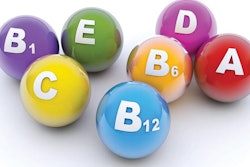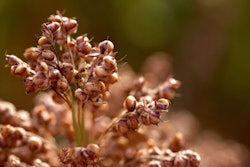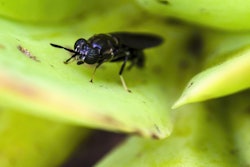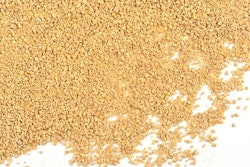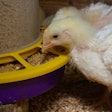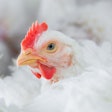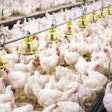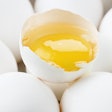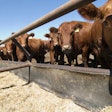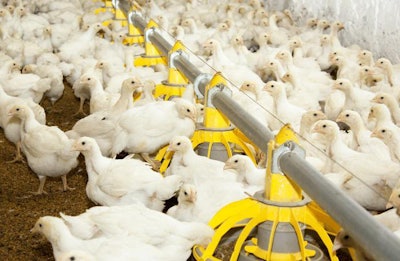
Requirements for sodium, potassium and chloride are higher during heat stress conditions
Electrolytes (sodium, potassium and chloride) are well-known compounds that dissolve into positive and negative particles in solution. The relationship between these compounds, known as the dietary electrolyte balance (DEB), is affected by their concentration.
The National Research Council (Nutrient Requirements of Poultry, 1994) recommends 0.20% sodium (Na+), 0.20% chloride (Cl-), and 0.30% potassium (K+) for broiler starter diets, and lower doses of sodium and chloride for the finisher diets. However, based on modern research, we know that under heat stress conditions these requirements are increased. Indeed, broilers perform better when increasing levels of these three electrolytes are offered, maintaining a DEB around 250 mEq/kg complete feed, using the following equation.
dEB (mEq/kg) = 1,000 x [Na(g/kg)/23 + K(g/kg)/39 – Cl(g/kg)/35.5]
Heat stress causes excess panting, leading to respiratory alkalosis. As birds pant, they respire excessive amounts of carbon dioxide, which leads to reduced concentrations of carbonic acid and hydrogen. In response, the kidneys respond by regulating excretion and secretion of these compounds in an attempt to maintain the acid-base balance. As a consequence, the balance of monovalent ions – closely related to acid-base balance – also change: Potassium and sodium concentrations decrease, whereas that of chlorine increases. In reverse, it is hypothesized that, by altering the dietary electrolyte balance during heat stress, it might be possible to minimize the negative effects of heat stress. To this end, several salts are added to broiler feeds and water.
Here, it merits noting that not all of the salts used for broilers are suitable for layers. In laying hens, the use of inappropriate salts may result in reduced eggshell quality and as such a different blend of salts is required. Consulting with an experienced nutritionist is important to adjust the electrolyte balance during thermal stress in birds.

